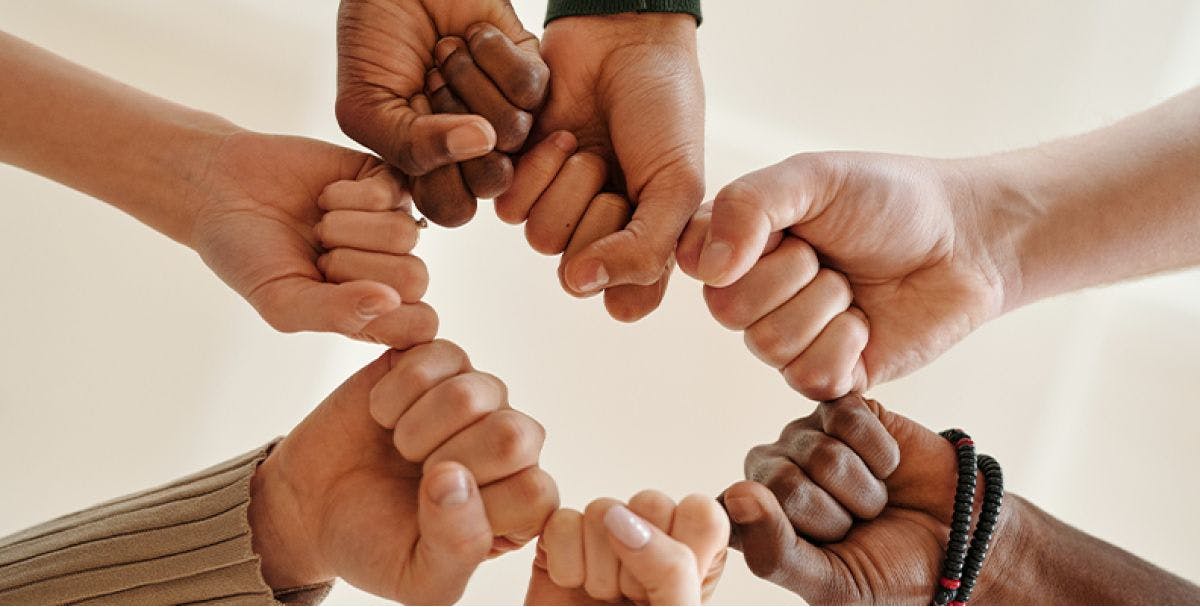Between November 25, the International Day for the Elimination of Violence Against Women, and December 10, the International Day for Human Rights, we come together to recognize 16 Days of Activism Against Gender Violence. First initiated by the Centre for Women's Global Leadership in 1991, this campaign aims to raise awareness and mobilize efforts to end gender-based violence and promote gender equity around the world. As we step into these 16 days, let’s seek to better understand the issue of gender-based violence and consider how we can collectively be part of the solution.
Understanding the Issue
Gender-based violence is a pervasive and multi-faceted issue that transcends borders, cultures, and socio-economic backgrounds. It encompasses physical, sexual, psychological, and economic harm inflicted on individuals based on their gender and manifests in various forms, such as domestic violence, sexual assault, and human trafficking. The World Health Organization reports that one in three women worldwide have experienced gender-based violence in their lifetime.
Who is affected?
The impacts of gender-based violence reach far beyond its immediate victims. Its effects ripple through families, communities, and societies, harming individuals of all genders in various ways.
In Canada, Indigenous women, girls, two-spirit, and transgender people experience disproportionately higher rates of gender-based violence than any other subset of the population. Root causes of this violence can be attributed to colonization, systemic racism, harmful gender norms, intergenerational trauma, and the lasting impacts of the Indian residential school system. The high frequency of violence committed against Indigenous women, girls, two-spirit, and transgender people has led to a dangerous desensitization throughout Canadian society. Let’s take a look at some stats on gender-based violence in Canada:
- Indigenous women are killed at nearly seven times the rate of non-Indigenous women in Canada (source)
- 63% of Indigenous women have been physically or sexually assaulted at some point in their lifetime, compared with 45% of non-Indigenous women (source)
- 50% of trafficked girls and 51% of trafficked women in Canada are Indigenous (source)
- 58% of Indigenous 2SLGBTQIA+ children under the age of 15 have been assaulted, compared to 26% of non-Indigenous, non- 2SLGBTQIA+children in this age bracket (source)
- 82% of children exposed to intimate partner violence in Manitoba are Indigenous (source)
These alarming statistics underscore the urgent need for collective action. It is not just the responsibility of survivors to speak out against gender-based violence; it is a collective duty that requires the active participation of everyone in society.

Taking Action, Together
Protection against gender-based violence requires a holistic approach that involves individuals, communities, governments, and organizations. Here are 16 ways to actively participate in this collective effort:
- Promote Gender Equality: Advocate for and actively participate in initiatives that promote gender equality in all aspects of life, including education, employment, decision-making processes, and economic empowerment.
- Know the Risks: While anyone may be impacted by gender-based violence, the odds of experiencing violence are not the same for everyone. Young women and girls, Black and racialized women and girls, Indigenous women and girls, LGBTQ2S+ individuals, women in Northern, rural, and remote communities, and people with disabilities are at much greater risk.
- Know you are not alone: If you are experiencing violence, know that you are not alone. It may be helpful, if safe to do so, to reach out to family or friends, consult a health worker, or seek support from a hotline or specialist services.
- Reach Out: If you need information about local resources or if you want to talk to an expert about a situation that worries you, call local helplines! For immediate support, there is a national support line at 1-844-413-6649 and a Manitoba crisis line at 1-877-977-0007.
- Support Organizations: Donate, volunteer, and contribute to organizations that support survivors of gender-based violence, whether at local, regional, or national scales. These organizations provide essential services such as counselling, legal assistance, and safe shelters. Some local organizations to consider supporting include:
- Ikwe Widdjiitiwin: an Indigenous women's organization that provides support and shelter for women experiencing domestic violence in Winnipeg.
- Clan Mothers Healing Village: a land-based healing village that provides restorative cultural practices for women, girls, two-spirit, and transgender persons from all regions of Manitoba and beyond who have experienced violence.
- Ending Violence Association of Canada: a national organization that focuses on research and advocacy to end gender-based violence. - Know the MMIWG Calls for Justice: Read and share the Calls for Justice in the MMIWG National Inquiry Final Report. Encourage others to live out the Calls for All Canadians.
- Educate Yourself and Others: Stay informed about the signs of gender-based violence and educate others in your community. Knowledge is a powerful tool for dismantling ignorance and fostering a culture of empathy and understanding.
- Educate Youth: Violence is often a learned behaviour. It is important for young people to learn how to openly communicate in relationships so they can give and ask for consent, set boundaries, and speak up if they see or experience violence.
- Question and Challenge: Actively question and challenge harmful beliefs and attitudes. Be an advocate for respectful and consensual relationships and speak out against sexism and misogyny when you encounter it.
- Promote Legislation and Policies: Advocate for and support legislation that protects survivors and holds perpetrators accountable. Engage with policymakers to ensure that laws addressing gender-based violence are comprehensive and effective.
- Engage Men and Boys as Allies: Encourage men and boys to actively participate in efforts to end gender-based violence. Men and boys can lead by example to promote healthy masculinity, challenge toxic behaviours, and emphasize the importance of consent.
- Encourage Corporate Responsibility: Encourage businesses and organizations to adopt and enforce policies that prevent and address gender-based violence within the workplace. Support initiatives that promote a safe and inclusive work environment.
- Stop Victim Blaming: Victim blaming is any response that states or implies a survivor holds responsibility for the violence they experienced. When someone places the blame on a survivor, it can exacerbate feelings of isolation and self-doubt. Support survivors and those affected by violence whenever you can, validate their experiences, and let them know that it is never their fault.
- Listen and Believe Survivors: If you know someone experiencing gender-based violence, let them know you are available to listen with no judgment and learn about how you can offer trauma-informed support. Disclosing experiences of violence takes a great deal of courage and risks re-traumatization, leaving many people feeling isolated and afraid to talk about their experiences. When listening to survivors, be conscious of vicarious trauma and your own limits for offering support.
- Find Support Services: Research what services are available in your area for people experiencing gender-based violence. If someone you know asks for help, be willing to connect them with support services. If there is immediate danger, call 9-1-1.
- Share Resources: Help raise public awareness by utilizing social media to share information and tools with your peers, colleagues, friends, families, and others in your network.
The fight against gender-based violence is a collective journey that requires the convergence of voices from all walks of life. By speaking out, challenging societal norms, and actively participating in efforts to protect and support survivors, we can dismantle the structures that perpetuate gender-based violence. Let us stand united in our commitment to creating a world where every individual, regardless of their gender, can live free from violence. Together, our voices can be the catalyst for lasting change.




